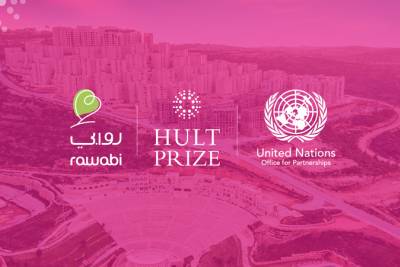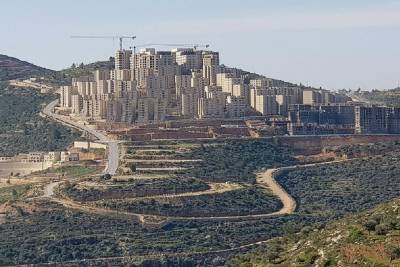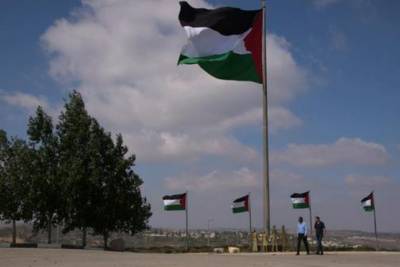Rawabi: Palestine’s Newest City
The Hidden Transcript - Palestine is in the midst of planning and developing their newest city, Rawabi. Projected to be completed by 2014 and coming in at a total cost of $1 billion, this is evidently no small scale project for an occupied state. Despite the fact that many parts of the West Bank and the Gaza Strip are occupied by Israeli settlement camps, Palestine continues their quest for independence and forges progressive conflict-free projects, including this initiative.
Rawabi is a city first of its kind for Palestine. The projected city boasts housing for 40,000 middle income families (where the average family size is of five people), a number of cafes, restaurants, mosques, commercial centres, parks and playgrounds, job, business, and franchise opportunities, and even an outdoor amphitheater. Moreover, Rawabi is to be Palestine’s first planned green and sustainable city.
Among the plans for making Rawabi sustainable include harvesting rainwater from roofs, a pedestrian-only city centre, wind energy turbines, and electric car charging stations. In a positive development, these sustainable initiatives have had the unintended side effect of leading to better relations between Israel and Palestine – the electric car charging station that is to be installed in Rawabi, for example, was developed and is managed by an Israeli company, thus encouraging environmentally and socially positive initiatives in the region. Yet not all have approached this project in a peaceful and positive manner – citizens of nearby Israeli settlement are opposed to this new Palestinian development due to security concerns, while some radical protesters from Palestine have also voiced their opposition to this project. Some days, the working crew of 3,000 people is met by protesters, both Israeli and Palestinian. Other days, developers are approached by Israeli investors interested in being a part of conflict resolution project such as Rawabi. Without a doubt, the Rawabi project is highly contested.
Developing a new Palestinian city requires the use of great caution, tact, and diplomacy. Rawabi is in Palestinian-administered territory, but 2.8 kilometers of the future road would pass through a part of the West Bank, which is currently under Israeli control.
Developers and project managers have to be aware of every move they make, from accessing roads to sourcing suppliers, as every decision has to take into account the politics of the region – one wrong move and the Palestinian developers could face a major setback. Luckily enough, Rawabi developers have managed to attract international support, from Israeli neighbors (who also believe that a prosperous democratic state for Palestine ensures security for Israel), to Qatari stakeholders, and even JewishAmericans who strongly advocate for laws and regulations to be adjusted so that this Rawabi project can move forward.
Rawabi, meaning “hills” in Arabic, is so much more than a new Palestinian city. Rawabi offers Palestinians the chance to start a new life in a new community free from negative attachments. It offers a fresh start for the future, new community space, and sustainable living. Moreover, it represents a progressive form of a political statement – whereas an older generation of Palestinians might have taken to the streets to protest and show their anger, a new generation of Palestinians (and Israelis) are disinterested in such protests and are proactively seeking progressive projects such as Rawabi to ensure security and freedom for the region. The successful completion of this large scale project, involving both Palestinian and Israeli stakeholders, will prove that conflict resolution initiatives can increase security, safety, and prosperity for both states, and may offer a new means through which to forge ties between these two peoples.
To view original article, Click Here.



